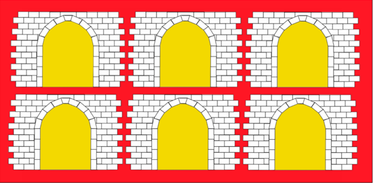| In ancient Israelite society, which had no police force or prisons, justice often was left in the hands of ordinary people. When there was a murder, it was up to the near relatives of the victim to exact justice by killing the murderer. What would happen, though, when there was an accidental killing? There is a danger that a never-ending cycle of revenge killings would spiral into a bloodbath. |
Of course, there is no need for such an institution today. In our society, we do not condone any kind of revenge killing. We empower the police to arrest and the courts to adjudicate people who are accused of murder. Yet, the law of the Six Cities of Refuge does have lasting meaning for us.
According to the Rambam (Maimonides), every city in the Land of Israel was required to maintain roads and post signs throughout the land to direct people to the nearest City of Refuge. There was a positive obligation to make it as easy as possible for an accused murderer to get justice (Mishneh Torah, Hilchot Rotzeach 8:5).
We are required to do for the accused murderer what God does for us. Just as we must help the accused murderer find his or her way away from unfounded accusation and toward justice, God helps us find our way away from guilt and harsh self-judgment. God leads us on Yom Kippur toward a place of safety where we can fairly and compassionately find justice for ourselves.
God does not want us forever inflicting pain upon ourselves for the things we accuse ourselves of having done, or having failed to do. Rather, God gives us Yom Kippur, a day which is a City of Refuge, to sort out our feelings about ourselves, to recognize what we have done wrong and what we might, in the future, do better. God keeps the pathway clear and marks it with signs to help us find our way out of self-recrimination and toward reconciliation and peace.
The laws in this week's Torah portion about the Six Cities of Refuge remind us to deal kindly with ourselves and with others. We remember that when we are afflicted with guilt, we are given a chance, and shown the way, to escape from the sword we wield against ourselves.
Other Posts on This Theme:
You are What You Choose to Be
Matot: Sacred Speech
Mas'ei: The Torah of Now


 RSS Feed
RSS Feed
